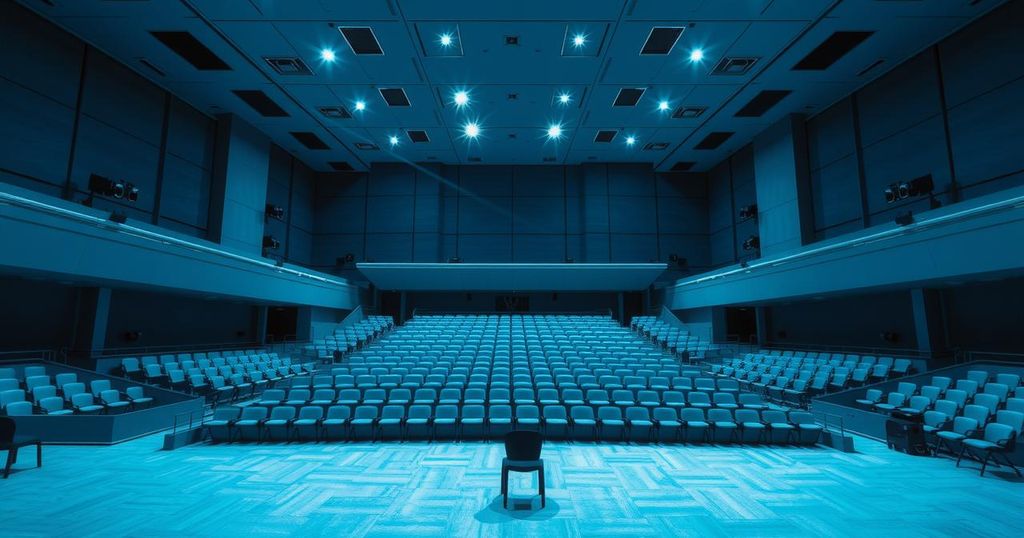The Decline of Opposition Voices in Nigeria’s House of Representatives

Nigeria’s opposition in the House of Representatives has significantly weakened due to defections and internal conflicts. Once holding a slim majority, opposition parties like the PDP and LP are now fragmented and ineffective, risking democratic accountability. Analysts urge for a revival of purpose to maintain a robust opposition that can challenge the ruling APC and uphold democratic values.
Historically, Nigeria’s opposition in the House of Representatives played a crucial role, characterized by vigorous debates and challenges to the ruling party. However, this once-strong opposition is now diminishing, overshadowed by a decline in dissent and defections among its ranks. Internal party conflicts and political expediency have contributed to the weakening of opposition parties, particularly the People’s Democratic Party (PDP) and the Labour Party (LP).
As of June 2023, the opposition held a marginal majority with 182 seats compared to the All Progressives Congress (APC) which had 175 seats. The major opposition party, PDP, possessed 118 lawmakers, while LP and the New Nigeria Peoples Party (NNPP) accounted for 35 and 19 seats, respectively. This numerical leverage presented an unprecedented opportunity for the opposition to significantly influence legislative agendas and governance.
However, nearly two years later, the situation has shifted. The opposition is bereft of an effective voice as defections erode their numbers. Several lawmakers from the PDP and LP have defected to the APC, leading to a fragmented opposition that struggles to hold the government accountable. With the focus shifting to personal political survival, many opposition members have opted for silence and alignment with the ruling party.
Political patronage has emerged as a driving force behind this transition, with the APC leveraging its control over executive resources to entice defections. Some lawmakers, such as Hussein Jallo, who recently switched to the APC, expressed their admiration for the leadership within the ruling party, further highlighting this trend.
The internal strife within the PDP, marked by leadership crises and factional divisions, has deepened the party’s troubles. Although the LP gained momentum after the 2023 election, it has lacked the structural robustness necessary for member retention and engagement. This disunity and failure to present a unified agenda or clear strategy for governance have contributed to the propensity of lawmakers to defect rather than stay and advocate for their parties.
The ramifications of this decline in opposition strength extend to democracy itself, with political analysts warning of the risks posed by a weak opposition. Without a robust opposition to check the ruling party, the essence of democratic governance—which relies on accountability and diverse perspectives—faces significant threats. Innocent Awuzie, a political analyst, noted that the absence of effective checks means that legislation may be passed without meaningful debate, leaving unchecked consolidation of power by the ruling party.
As defections continue, opposition parties face the loss of grassroots support and funding, complicating their competitiveness in future elections. Awuzie underscores that this trajectory could lead Nigeria towards a landscape dominated by a single political entity, with electoral competition rendered merely formal. For the opposition to reclaim its relevance, it must confront and resolve its internal disputes, reinforce party discipline, and articulate a compelling vision for governance.
Political analysts advocate for lawmakers to prioritize the long-term integrity of Nigeria’s democracy over short-term gains from alignments with the ruling party. If not addressed, the diminishing voice of the opposition will render the House of Representatives an echo chamber of the ruling party, where dissenting voices are not just silenced but nearly eradicated.
The gradual decline of Nigeria’s opposition in the House of Representatives is evident through defections and internal conflicts, undermining its once powerful presence. The impact on democracy is profound, as a weak opposition raises the risk of unchecked governing power. To remain relevant, opposition parties must unify, resolve internal disputes, and effectively articulate an alternative approach to governance. Without these changes, the future roles of dissent and accountability in Nigerian democracy are jeopardized.
Original Source: businessday.ng






